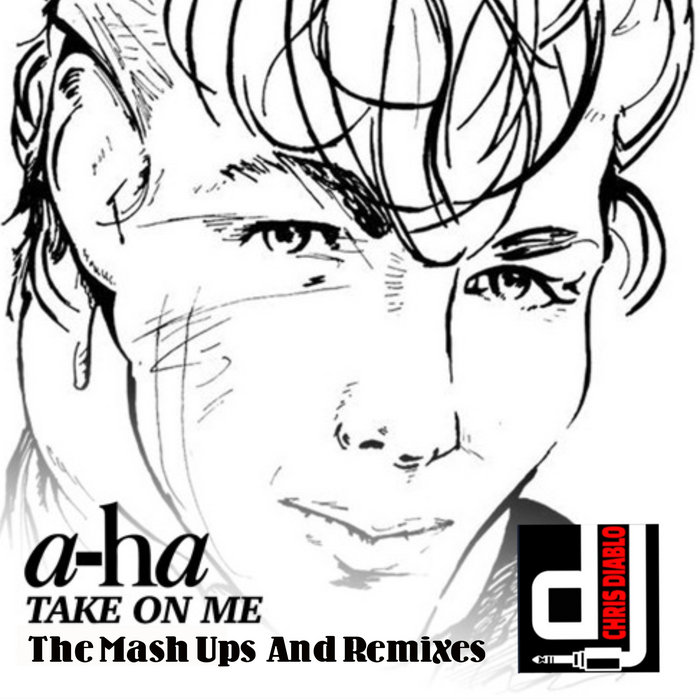
Aha – Take On Me – The Mash Ups And Remixes – Dj Chris Diablo
this blog is GROOVY – check out great Soul, Funk, Jazz, Hip Hop, Bass, Breaks , Reggae, House n many more TUNES
Hey there, music lovers! Grab your headphones and pull up a funky chair as we take a wild ride through the colorful history of bootleg remixes. You know the ones—those sneaky mixes that make you want to dance like nobody’s watching. Let’s groove through time and uncover some funny facts about this unique sound!
First off, let’s set the stage. A bootleg remix is like that friend who shows up uninvited but ends up being the life of the party. These tracks are unofficial remixes created without permission from the original artists or record labels. They often blend different songs, add fresh beats, or create mashups that get everyone on their feet.
Bootlegging isn’t just about mixing; it’s all about creativity and bending rules at an underground level. Think late-night raves where DJ Sneak drops unexpected gems on unsuspecting dancers—it’s musical rebellion at its finest!
The roots of bootleg culture can be traced back to the vibrant disco scene in the late 1970s. DJs were already experimenting with stretching out those killer beats and mixing tracks live in clubs—talk about getting funky! As cassette tapes became more accessible in the early ’80s, folks started recording these club sessions at home (shoutout to mixtapes!).
One classic example is “Louie Louie” by The Kingsmen—a track so iconic it got covered by just about everyone under the sun! Imagine if someone took all those covers and mashed them together? Boom! You’d have a prime example of what would later become a beloved bootleg remix vibe.
Fast forward to the late ‘90s when things began heating up like summer BBQ vibes! This was when mashups gained popularity—the beautiful art of blending two (or more!) distinct songs into one mind-blowing experience.
Names like DJ Danger Mouse stole headlines with his revolutionary “The Grey Album,” which mixed Jay-Z’s “The Black Album” over samples from The Beatles’ “White Album.” It got him into hot water with both fanatics and legality experts alike—but hey, no good story ever came without controversy!
Fun Fact: Danger Mouse once had to hide out for weeks after dropping “The Grey Album.” As if he were living out some sort of hip-hop spy drama!
With technology advancing quicker than you can say “DJ Khaled,” entering the new millennium made it easier than ever for everyday folk to hop onto their laptops equipped with software like Ableton Live or GarageBand—which means party-goers can now create their own vibes right from their bedrooms.
During this era, sites like SoundCloud sprang up as platforms for creatives everywhere to share their work without mainstream pressures holding them down. You could find anything from juicy pop hits mashed with hip-hop bangers—or how about combining smooth jazz vocals over pulsating EDM beats? Yeah baby!!
And let’s not forget Youtube star Girl Talk! He turned crowd-pleasing mashups into high art with tracks featuring everyone from Notorious B.I.G. to Britney Spears flawlessly stitched together—you won’t believe how many genres fit under one play button!
Funny Fact: Girl Talk once performed live while being pelted by toilet paper—and he continued spinning records as if nothing happened… Now that’s dedication!
As we strode deeper into digital territory throughout 2000s onwards, lawsuits began popping up faster than surprise guest appearances at awards shows.
Many major artists weren’t thrilled seeing their tunes chopped-up without consent; acts including Madonna went after illegal remix artists claiming infringements left-and-right—talking serious business here! But what they didn’t realize is that fans thrived on these creative processes—the thrill of discovering something new within familiar sounds blew minds across demographics worldwide along every genre line imaginable.
Still though…it did spawn amusing moments such as when DJ Earworm released his annual “United States Of Pop”, summarizing each year musically only triggered massive copyright panic attacks while listeners happily jammed along anyway….who said trouble couldn’t bring laughter?!
Now we’re chilling in today’s sonic landscape where social media fuels trends faster than anyone thought possible—from TikTok challenges igniting viral dances based on clever edits—to popular apps allowing musicians even more avenues toward showcasing unique talents (hey there Splice!).
Artists continue harnessing bootlegs beautifully woven among originals creating fresh takes recognizable enough for airplay yet spicy enough not limited solely commercial realms pushing traditional boundaries beyond imagination sounding sweeter than honeycomb crunch cereal before breakfast!
To wrap things all groovily together: Bootleg remixes represent freedom within music itself—they’re innovative concoctions born straight-from-the-heart reminding us why we fell head-over-heels for rhythm-loving beat droppin’ jams forever ago; they feed our passion wanting more blends twixt melody because come on…life would hardly be complete without ’em dancing away beneath shimmering disco balls lighting bright nights filled camaraderie laughter joy bouncing unbeatably through time…and boy do we love it!
So whether you’re hitting clubs or simply vibing alone again tonight remember snacks might run low but keep those ears wide open because someone’s always cooking another delicious mix ready hijack your speakers next—it never really ends either does it!?
Now go turn up that volume—it’ s BOOTLEG TIME! 🎶

Aha – Take On Me – The Mash Ups And Remixes – Dj Chris Diablo